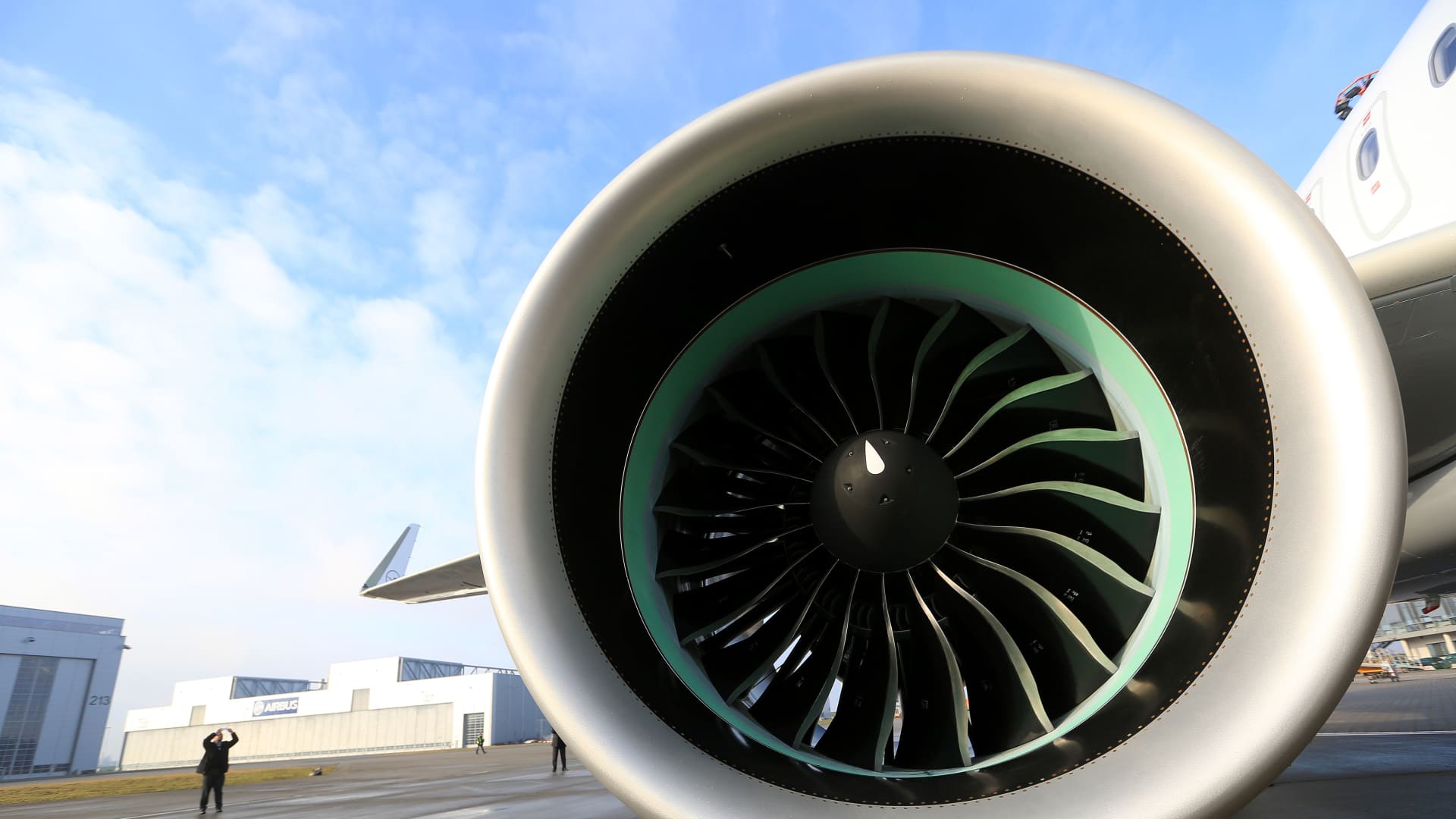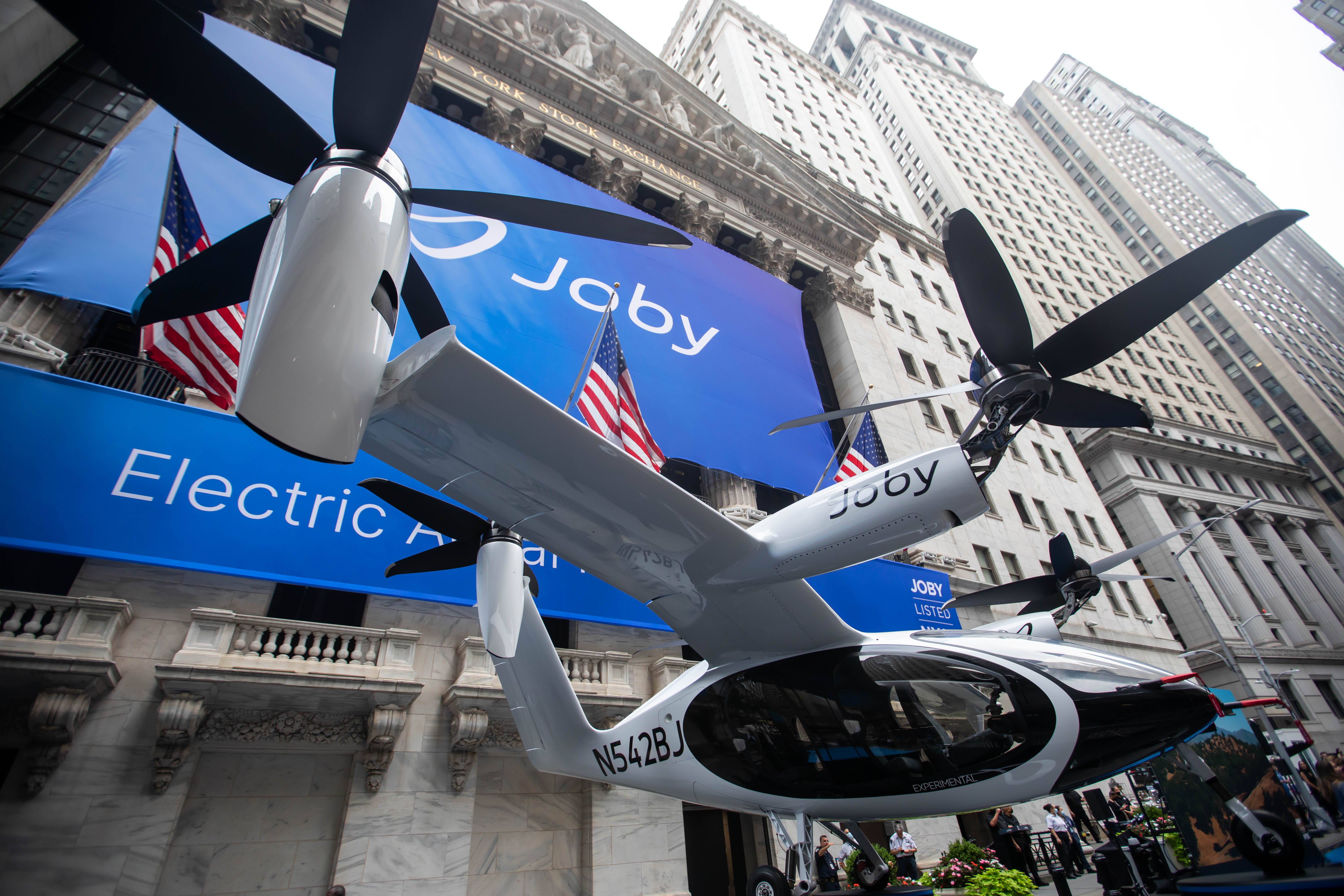Shares of RTX tumbled 10% on Tuesday after the aerospace giant said a manufacturing problem with some of its popular engines will require “accelerated” inspections on about 200 of them.
The problem stems from powdered metal used to make some engine parts, RTX, the parent of airplane engine maker Pratt & Whitney, said during a quarterly earnings call. Engines currently in production are not affected, the company said.
related investing news
RTX, previously known as Raytheon Technologies, trimmed its cash flow outlook for the year by $500 million to $4.3 billion due to the problem.
“It’s going to be expensive,” RTX CEO Greg Hayes said during the company’s earnings call. “We’re going to make the airlines whole as a result of the disruption we’re going to cause them.”
The problem is the latest challenge for airlines on top of late aircraft from manufacturers, as carriers seek to reap the rewards of a travel boom with limited numbers of available planes.
Pratt & Whitney said that it also expects about 1,000 more engines will have to be removed from airline fleets over the next nine to 12 months.
Noah Poponak, aerospace and defense equities analyst at Goldman Sachs, said the impact could spill into next year and potentially 2025, depending on how many of the roughly 1,000 engines will need to be sent to repair shops sooner than scheduled.
“I think the stock reaction is actually reasonable,” said Poponak, who has a neutral rating on RTX with a 12-month price target of $102. Shares closed at $87.10 on Tuesday.
The engines have had other challenges that have required maintenance, particularly when operating in hot climates, Poponak noted.
RTX said it will continue to deliver new aircraft engines and parts. A spokesman told CNBC that the issue does not affect flight safety.
The issue will impact some A320neos, a narrow-body plane and one of the world’s most popular aircraft. It competes with the Boeing 737 Max.
The Federal Aviation Administration said it is aware of the issue and is in contact with Pratt & Whitney as well as airlines affected by the problem
“The agency will ensure that the appropriate steps are taken,” the FAA said.
Delta Air Lines, a major Airbus customer, said it is looking into the issue. Airbus didn’t immediately comment. A JetBlue Airways spokeswoman said the carrier is “working with Pratt to assess the impact to our fleet.”
Meanwhile, shares of General Electric, a rival engine maker, added more than 6% on Tuesday to a more than five-year high, after the conglomerate raised its revenue and cash flow forecast for the year, in part because of strong demand for jet engines.




